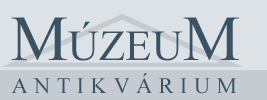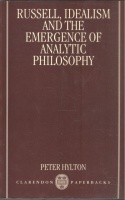kategóriák
- Közlekedés ajánlójegyzék
- Szocreál ajánlójegyzék
- Reklám ajánlójegyzék
- Fotó ajánlójegyzék
- Kínai-japán ajánlójegyzék
- Szentkép ajánlójegyzék
Új árakkal! - Új szentkép ajánlójegyzék II.
- 12 érdekes régiség
 Könyv
Könyv
 Bibliofilia
Bibliofilia
 Régiség
Régiség
 Metszet
Metszet
 Térkép
Térkép
 Fotó
Fotó
 Papírrégiség, Aprónyomtatvány
Papírrégiség, Aprónyomtatvány
 Plakát
Plakát
- Cirkusz
- Modern grafika
- Szocreál
- NER Irodalom
- Egyéb
kosár
üres a kosár
nincs bejelentkezve
Hylton, Peter : Russell, Idealism, and the Emergence of Analytic Philosophy
- leírás
- további adatok
In this book, the author seeks to shed light on the tradition of analytic philosophy by examining one important phase in its formation. This phase is Bertrand Russell's rejection of Absolute Idealism, and his development of a new philosophy based, in part, on the logic that he developed. The book begins by examining the British Idealism of T. H. Green and F. H. Bradley. Against this background, it discusses Russell's own early work, which was in this idealist tradition. The author then considers the philosophical views that G. E. Moore and Russell initially developed in reaction to that tradition (around 1900). In Russell's work, this philosophy was soon combined with the logic that he developed (following Peano) and with the thesis of logicism: that mathematics can be reduced to logic, and so makes no philosophical demands beyond those made by logic. The book examines subsequent developments in Russell's thought, to about 1912, in some detail; these include the theory of descriptions and the theory of types. It concludes with a less detailed discussion of the evolution of Russell's thought over the next few years. In this latter period, Russell develops a constructivist programme, which makes evident the continuity of this phase of his thought with that of later analytic philosophers.
| állapot: |      |
| kategória: | Könyv > Filozófia > |
| kategória: | Könyv > Idegennyelvű könyvek > Angol nyelvű > |
| kiadó: | Oxford University, 1993 |
| cikkszám / ISBN: | 9780198240181 |
| kötés: | fűzve |
| oldalszám: | 420 |
| könyv nyelve: | angol |









 Telefon:
Telefon: E-mail:
E-mail:







